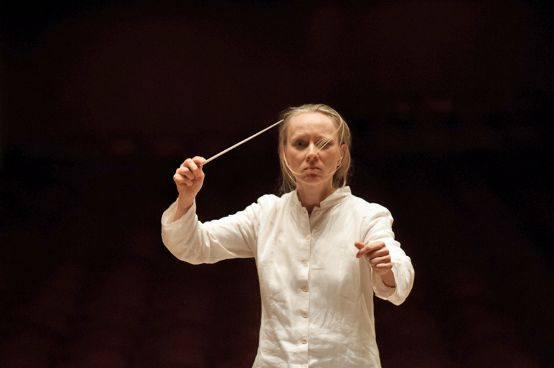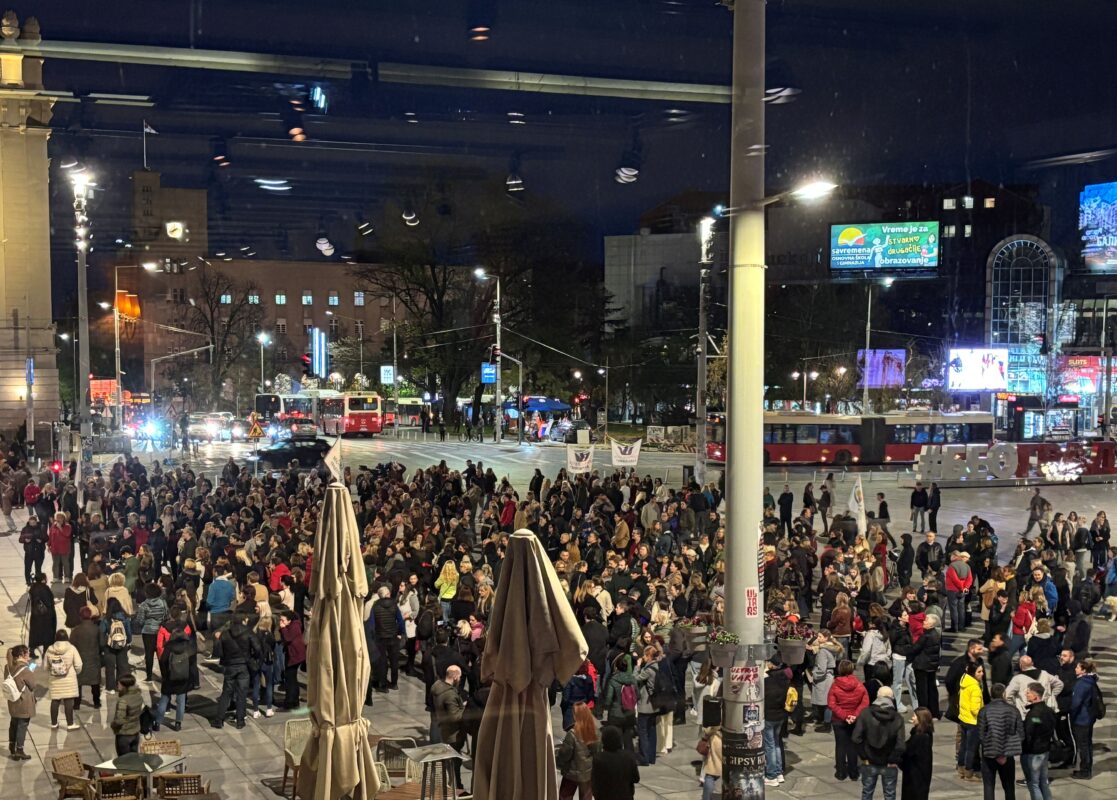Outrageous things from women
The first part of the "frauenkomponiert" festival took place around International Women's Day in London and Basel. In June, the festival will continue in Basel, Bern and Zurich with pieces by outstanding female composers.

"frauenkomponiert", founded in 2015, is taking place for the fifth time this year and in a new internationalized form. The artistic director, the British-Swiss conductor Jessica Horsley, has put together a greatly expanded program compared to previous years. Horsley studied at the Schola Cantorum Basiliensis, among others, and lives in Basel. Optimism that the virus would soon be defeated probably played a major role in the planning.
The festival's guiding principle of "bringing to life compositions from the 9th to the 21st century by women from different countries" (website) is not only commendable, but an imperative of our time, especially as many of these "unheard sounds" deserve to be made accessible to the music world.
Jessica Horsley made her debut with the BBC Concert Orchestra at the start of the festival on March 8. The concert was broadcast live on BBC 3 from the audience-free Watford Colosseum in north London and was entitled "Pioneers of a Century 1921-2021". The program featured symphonic music by the British Ruth Gipps (1921-1999) and the Australian Peggy Glanville-Hicks (1912-1990). The organizers thus broke into a male domain, so to speak, as late Romantic orchestral music by women is still rare in today's standard concert repertoire. In between was the world premiere of the revised version of Cécile Marti's Wave trip for large orchestra from 2011.
One premiere and two first performances
Ruth Gipps studied with Ralph Vaughan Williams, among others. As a composer, she strictly rejected atonality, twelve-tone music and serialism throughout her life. She achieved early success in 1942 with the orchestral poem Knight in Armourwhich was premiered at the "Last Night of the Proms".
The concert opened with the 2nd Symphony op. 30 (1946). Gipps works with grand gestures, a bit Hollywood, but orchestrates it in a varied and colorful way. Together with the splendid orchestra, Horsley focuses on transparency, a slender tone and works out finely graduated dynamics and striking tempo changes, but also gives space to pathos.
Peggy Glanville-Hicks, also a student of Ralph Vaughan Williams, left behind a large and varied oeuvre. Jessica Horsley said on BBC 3 about the composer: "She is an amazing person, her music speaks to us, it's an incredibly direct music." At the London concert, Glanville-Hicks' ballet music experienced Tragic Celebration (1964) had its British premiere. It is dedicated to the American choreographer John Butler, who brought most of its eight ballet scores to the stage. The piece contains everything from fairytale-like, idyllic moods to drama - a grateful template for a classical ballet.
The Sinfonia da Pacifica (1953), also a British premiere, impresses with its snappy rhythms and pulsating percussion combined with a direct, blunt melody. Jessica Horsley characterizes the piece as "optimistic and brilliant".
Cécile Marti has written her piece Wave trip rewritten under the impression of the Covid-19 pandemic, said the conductor, because the word "wave" is associated with completely new phenomena in the current crisis, which must also be taken into account. What remains is a full, colorful orchestral sound with ascending and descending glissandi that lead into different layers of intervals and standing sound structures. The BBC Concert Orchestra provided an achingly beautiful listening experience.
A matter of luck Livestream
Livestream can be a good alternative, but there are still teething problems here and there. Of the other three festival concerts in March (in cooperation with local concert series in Basel), two were not enjoyable; one due to constant interruptions and the second due to extremely poor sound quality. Matthias Wamser played an exciting program on the Elisabethen organ with pieces by Elsa Barraine, Ilse Gerényi, Violeta Dinescu and Maria Hofer. However, the pauses in loading were simply too long to get a consistent impression. Susanne Doll, organ, and Carmit Natan, soprano, could be heard from the Leonhardskirche with soulful songs by Israeli songwriter Naomi Shemer without interruption, but unfortunately only very distorted.
The evening music from the Predigerkirche, on the other hand, proved that livestreaming can work. A beautiful program entitled "Chiara Margarita Cozzolani and the nuns of S. Radegonda" could be enjoyed without any disruptions. Under the direction of Jörg-Andreas Bötticher, a competent instrumental ensemble and outstanding soloists performed compositions by Cozzolani, the highly musical Milanese nun from the 17th century.
The festival will continue in Basel, Bern and Zurich in June 2021.
Link to neo.mx3








